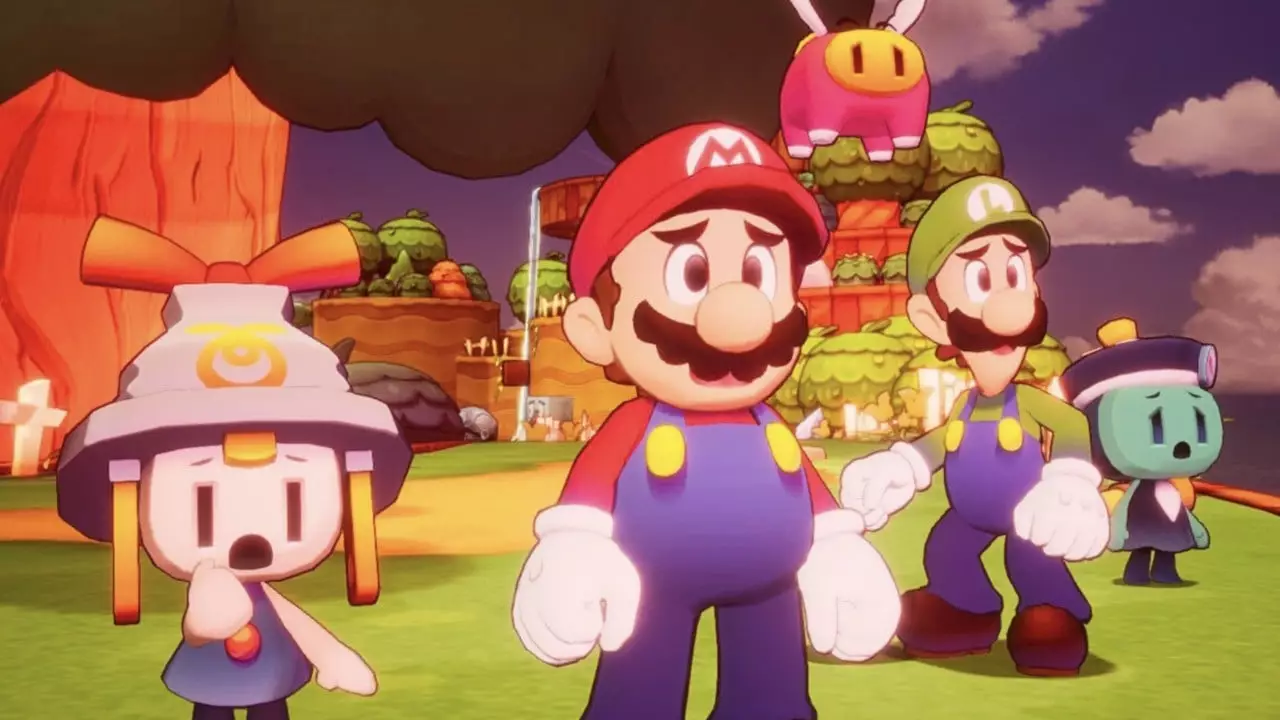In the realm of gaming, developing a title is more than just the final product; it often encapsulates the essence of the game and its characters. Recently, it became public that the developer Acquire joined forces with Nintendo to sift through an impressive roster of over 100 title possibilities for their upcoming RPG. The final choice, ‘Mario & Luigi: Brothership’, emerged from an intriguing selection process that illustrates both the collaborative spirit of the development teams and the challenges they faced during the creative process.
The title ‘Brothership’ isn’t just a play on words; it deftly captures the central themes of the game. The term reflects the physical context of the brothers’ adventures on their ship island, while also symbolizing the bond of friendship and camaraderie.
Acclaimed producer Akira Otani noted in a recent interview that there was an initial desire to incorporate ‘Wonder’ into the title, specifically as ‘Mario & Luigi Wonder.’ However, the timing of Super Mario Bros. Wonder’s release created a dilemma, leading the team to pivot toward a title that resonated with their narrative vision without clashing with existing brands. This unfolding of events highlights the importance of timing in the gaming industry, where a single name can have significant implications for market positioning and brand identity.
An interesting aspect of the title change narrative is the implied suggestion that the teams behind ‘Mario & Luigi: Brothership’ may not have been fully aware of Super Mario Bros. Wonder’s release and branding strategy prior to their own title announcement. This raises questions about the level of communication between development teams at Nintendo, especially given the stature of industry veterans like Takashi Tezuka overseeing both titles.
Given Tezuka’s extensive experience with the Mario franchise, one would expect a robust exchange of ideas and updates about ongoing projects. This misalignment, whether intentional or accidental, has sparked dialogues among fans and industry analysts. It serves as a reminder of the complex dynamics that can exist even in well-established companies and franchises where one might presume a seamless flow of information.
Despite the potential of ‘Mario & Luigi Wonder’ as a catchy title, many fans and analysts—myself included—have expressed relief that ‘Brothership’ was chosen instead. The title not only ties into Nintendo’s established lexicon but also solidifies the narrative focus on the brotherly relationship that lies at the heart of the Mario saga.
At the end of the day, the selection of ‘Brothership’ epitomizes the necessity of thoughtful decision-making in creative processes. The title ultimately aligns with the game’s themes and narrative, assuring fans that their beloved franchise continues to evolve while staying true to its roots.
As Nintendo and Acquire prepare to launch an RPG that promises to be both engaging and innovative, the behind-the-scenes decision-making processes reveal much about the development of gaming titles and the narrative threads they weave. The journey from brainstorming to finalization offers a fascinating glimpse into the industry’s creative landscape.

